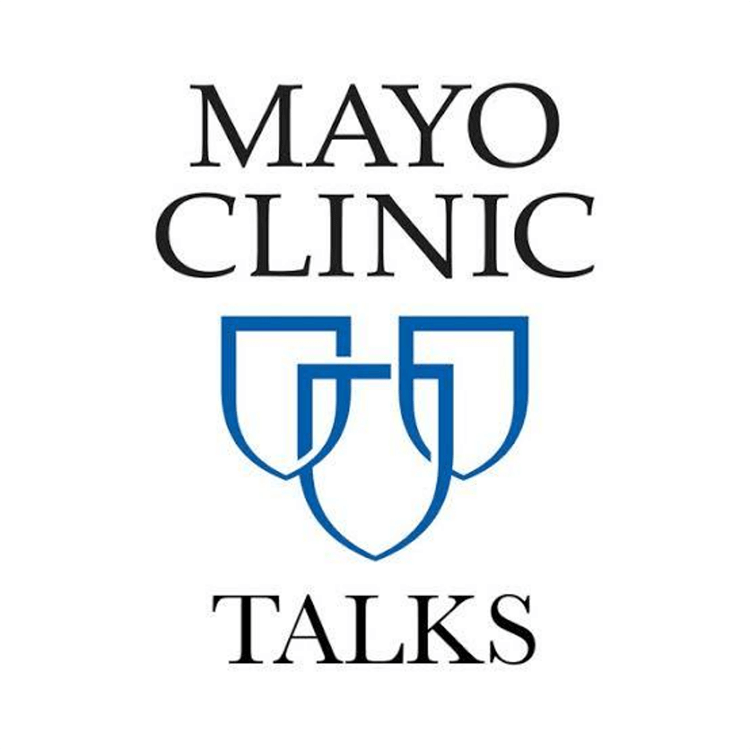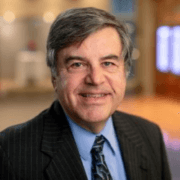
Mayo Clinic Talks
Stay on top of your practice with podcasts from colleagues at Mayo Clinic.
Genes and Your Health Edition | AI in Cardiology and Primary Care
Host: Denise M. Dupras, M.D., Ph.D.
Guest: Peter A. Noseworthy, M.D., M.B.A.
Rapid advances in artificial intelligence, or AI, are changing everyday medical practice. In this episode of Genes & Your Health, explore the transformative role of AI in cardiology and primary care practices. Don’t miss this fascinating episode of Genes & Your Health with Peter A. Noseworthy, M.D., M.B.A., Professor of Medicine and Chair of the Division of Heart Rhythm Services at the Mayo Clinic. We’ll discuss the power of AI in early detection of heart disease, streamlined workflows for better patient outcomes, and ethical considerations of using AI in healthcare.
Connect with the Mayo Clinic’s School of Continuous Professional Development online at https://ce.mayo.edu/ or on Twitter @MayoMedEd.
July 25, 2024
From Head to Toe: How to Perform a Skin Exam
Host: Darryl S. Chutka, M.D., [@chutkaMD]
Guest: Emma F. Johnson, M.D.
For both men and women, skin cancer is the most common malignancy and unlike colon, breast and lung cancer, skin cancers should be visible as they exist on the exterior of our bodies. Primary care providers need to be proficient in examining the skin of our patients and recognizing suspicious skin lesions. It’s just not possible to send all patients to a dermatologist for a skin exam. In this podcast, we’ll explore what questions we should ask our patients before we perform an exam of their skin, how we fit a skin exam into our busy schedules, and when a photograph of a skin lesion might be of benefit. Our guest for this podcast is Emma F. Johnson, M.D., a dermatologist from the Mayo Clinic.
Connect with the Mayo Clinic’s School of Continuous Professional Development online at https://ce.mayo.edu/ or on Twitter @MayoMedEd.
July 23, 2024
Genes and your Health Edition | Answers from the Lab: Cell Free DNA and Testing for Cancer
Host: Denise M. Dupras, M.D., Ph.D.
Guest: Aaron S. Mansfield, M.D.
Can a simple blood draw diagnose cancer? Join this episode of Genes & Your Health with Aaron Mansfield, M.D., a Mayo Clinic medical oncologist whose focus is on thoracic malignancies and early therapeutics, as we discuss the science behind non-invasive cancer screening, how cell-free DNA tests can help diagnose some cancers earlier than ever before, what limitations exist, and what promise the future holds.
Connect with the Mayo Clinic’s School of Continuous Professional Development online at https://ce.mayo.edu/ or on Twitter @MayoMedEd.
July 18, 2024
RISE for EQUITY Podcast | Leadership in Healthcare: An Asian American Perspective
Brought to you by: Mayo Clinic Talks Podcast
HOST: Nicole Nfonoyim-Hara
GUEST: Amy Hara, M.D.
On this episode of the RISE for Equity podcast, Dr. Amy Hara joins host Nicole Nfonoyim-Hara for an insightful discussion on the topic of leadership in healthcare. Dr. Hara, a member of the Mayo Clinic Board of Governors and Mayo Clinic Arizona’s Executive Operations team, shares her experiences and perspectives on what it means to be an effective leader in the ever-evolving healthcare industry.
Learn more at https://mcpress.mayoclinic.org/rise-for-equity/
Connect with the Mayo Clinic’s School of Continuous Professional Development online at https://ce.mayo.edu/ or on Twitter @MayoMedEd.
"For my leadership, I really encourage folks to bring themselves. Because you think differently or because you do this differently, you would be a great leader. I try to encourage people that's a strength in not trying to mold yourself into something else."
-Amy Hara, M.D.
July 16, 2024
Artificial Intelligence (AI) in Medicine: Part 2
Host: Darryl S. Chutka, M.D. [@chutkaMD]
Guest: Jason D. Greenwood, M.D., M.S.
Artificial intelligence is currently one of the most commonly discussed topics, but how does it relate to the practice of medicine? According to a recent publication in the Journal of the American Board of Family Medicine, “AI has the potential to fundamentally change the way society thinks about medicine, the way medicine is practiced, and the way medicine is taught.” That’s a pretty all-encompassing statement regarding the effect AI will have on what we do. Is AI beneficial to us as clinicians? Are there challenges associated with it? What are its shortcomings? In this podcast, I’ll be asking my guest, Jason D. Greenwood, M.D., M.S., a family physician at the Mayo Clinic these questions and as we discuss Artificial Intelligence in Medicine in this two-part release on July 9 and July 11!
Connect with the Mayo Clinic’s School of Continuous Professional Development online at https://ce.mayo.edu/ or on Twitter @MayoMedEd.
July 11, 2024
Artificial Intelligence (AI) in Medicine: Part 1
Host: Darryl S. Chutka, M.D. [@chutkaMD]
Guest: Jason D. Greenwood, M.D., M.S.
Artificial intelligence is currently one of the most commonly discussed topics, but how does it relate to the practice of medicine? According to a recent publication in the Journal of the American Board of Family Medicine, “AI has the potential to fundamentally change the way society thinks about medicine, the way medicine is practiced, and the way medicine is taught.” That’s a pretty all-encompassing statement regarding the effect AI will have on what we do. Is AI beneficial to us as clinicians? Are there challenges associated with it? What are its shortcomings? In this podcast, I’ll be asking my guest, Jason D. Greenwood, M.D., M.S., a family physician at the Mayo Clinic these questions and as we discuss Artificial Intelligence in Medicine in this two-part release on July 9 and July 11 this week!
Connect with the Mayo Clinic’s School of Continuous Professional Development online at https://ce.mayo.edu/ or on Twitter @MayoMedEd.
July 9, 2024
Management of Varicose Veins
Host: Darryl S. Chutka, M.D. [@chutkaMD]
Guest: Newton B. Neidert, M.D.
Varicose veins are quite common and for most, they’re a minor nuisance. However, for some individuals, they have the potential to be much more than a cosmetic health problem. They can lead to a variety of symptoms including skin discoloration, discomfort, extremity swelling and occasionally skin ulceration. Fortunately, there have been numerous advances in the management of varicose veins and in this podcast, I’ll discuss these advances with interventional radiologist, Newton B. Neidert, M.D., from the Mayo Clinic. We’ll discuss who’s at risk for varicose veins, typical symptoms patients experience and the conservative as well as more invasive treatment options.
Connect with the Mayo Clinic’s School of Continuous Professional Development online at https://ce.mayo.edu/ or on Twitter @MayoMedEd.
July 2, 2024
Healthcare of the Transgender Patient
Host: Darryl S. Chutka, M.D. [@chutkaMD]
Guest: Natalie C. Erbs, M.D.
There is abundant research that indicates there are healthcare inequities experienced by transgender individuals. Transgender patients have the same basic health care needs as any patient. However, in addition, they might also have gender-related healthcare needs and concerns. It’s important for us to meet these healthcare needs, and this requires some special knowledge. The special needs of the transgender patient may be related to gender-affirming hormonal therapy or surgery, or it may relate to gender-specific preventive healthcare. This podcast will explore transgender health care. We’ll discuss the difficulties experienced by transgender patients, the specific healthcare needs they have and how we can become more educated in providing healthcare to transgender patients. My guest is Natalie C. Erbs, M.D., from the Department of Family Medicine at the Mayo Clinic.
Mayo Clinic Minute: Coming out as LGBTQ to your health care provider - Mayo Clinic News Network
Connect with the Mayo Clinic’s School of Continuous Professional Development online at https://ce.mayo.edu/ or on Twitter @MayoMedEd.
June 25, 2024
Mayo Clinic Talks
Stay on top of your practice with podcasts from colleagues at Mayo Clinic.
Curated. Portable. Trusted.
Opinions expressed in the podcast do not necessarily reflect those of Mayo Clinic.
Host

Darryl Chutka, M.D.
Internist | Geriatrician | Educator | Host































